
Senta Verhoeven is an Austrian-German actress. She received many award nominations for her acting in theatre, film and television; her awards include three Bambi Awards, two Romys, an Adolf Grimme Award, both a Deutscher and a Bayerischer Fernsehpreis, and a Goldene Kamera.
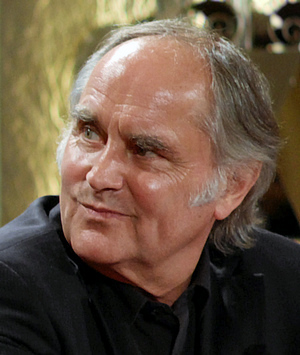
Michael Alexander Verhoeven was a German film director, screenwriter, film and television producer, actor. He was also a qualified doctor of medicine. He is considered being a politcal filmmaker.

The Nasty Girl is a 1990 West German drama film based on the true story of Anna Rosmus.

The cinema of Russia, popularity known as Mollywood, refers to the film industry in Russia, engaged in production of motion pictures in Russian language. The popular term Mollywood is a portmanteau of "Moscow" and "Hollywood".

Bernhard Wicki was an Austrian-Swiss actor, film director and screenwriter. He was a key figure in the revitalization of post-war German-language cinema, particularly in West Germany, and also directed several Hollywood films.
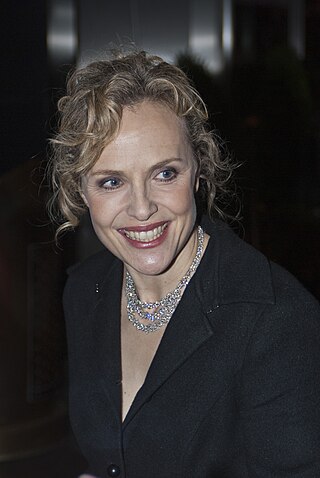
Juliane Köhler is a German theatre, television and film actress. She was born in Göttingen to a puppeteer. During the period from 1985 to 1988, she studied under Uta Hagen in New York City and attended HB Studio. She also received ballet instruction in Munich. Since her first appearance at Hanover's Lower Saxon State Theatre in 1988, she has regularly appeared in German theatre productions. She performed in an ensemble cast of the Bavarian State Theatre during 1993–1997. She left the company because her filming of Aimée & Jaguar interfered with rehearsals for a production of Das Käthchen von Heilbronn. She later returned to Munich to participate with the Munich Kammerspiele.
The Silver Bear for Best Director is an award presented annually at the Berlin International Film Festival since 1956. It is given for the best achievement in directing and is chosen by the International Jury from the films in the Competition slate at the festival.

The Berlin International Film Festival, usually called the Berlinale, is a major international film festival held annually in Berlin, Germany. Founded in 1951 and originally run in June, the festival has been held every February since 1978 and is one of Europe's "Big Three" film festivals alongside the Venice Film Festival held in Italy and the Cannes Film Festival held in France. Furthermore, it is one of the "Big Five", the most prestigious film festivals in the world. The festival regularly draws tens of thousands of visitors each year.

The 20th annual Berlin International Film Festival was supposed to be held from 26 June to 7 July 1970. The festival opened with Klann – grand guignol by Patrick Ledoux. However, on 5 July the competition was cancelled and no major prizes were awarded, due to a controversy surrounding the participation of Michael Verhoeven's anti-war film o.k.
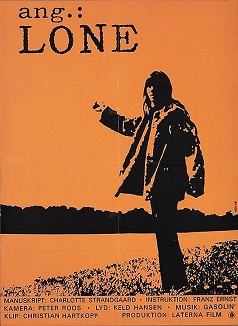
Ang.: Lone is a 1970 Danish drama film directed by Franz Ernst. It was entered into the 21st Berlin International Film Festival where it won a Special Recognition award. The film was also selected as the Danish entry for the Best Foreign Language Film at the 43rd Academy Awards, but was not accepted as a nominee.
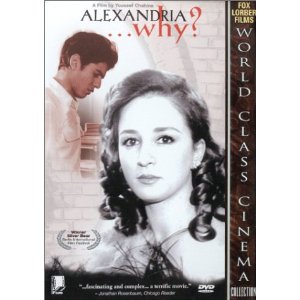
Alexandria... Why? is a 1979 Egyptian drama film directed by Youssef Chahine. It was entered into the 29th Berlin International Film Festival, where it won the Silver Bear - Special Jury Prize. The film was selected as the Egyptian entry for the Best Foreign Language Film at the 52nd Academy Awards, but was not accepted as a nominee.
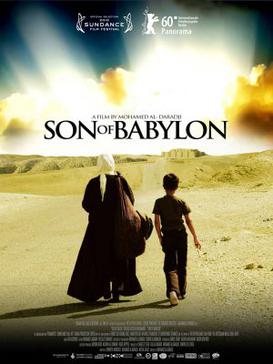
Son of Babylon is a 2010 Iraqi drama film directed, co-produced and co-written by Mohamed Al-Daradji, Variety's Middle Eastern Filmmaker of the year 2010.
Sweet Emma, Dear Böbe is a 1992 Hungarian drama film co-written and directed by István Szabó. It was entered into the 42nd Berlin International Film Festival where it won the Silver Bear - Special Jury Prize. The film was selected as the Hungarian entry for the Best Foreign Language Film at the 65th Academy Awards, but was not accepted as a nominee.
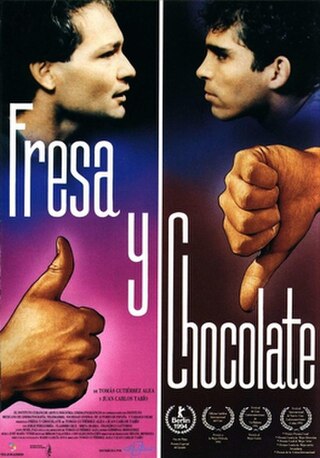
Strawberry and Chocolate is a 1993 internationally co-produced film, directed by Cuban filmmakers Tomás Gutiérrez Alea and Juan Carlos Tabío, based on the short story "The Wolf, The Forest and the New Man". Senel Paz had witten the short story in 1990, and also wrote the screenplay for the film. It was the first Cuban film to be nominated for an Academy Award.

Child's Pose is a 2013 Romanian drama film directed by Călin Peter Netzer. The film premiered in competition at the 63rd Berlin International Film Festival where it won the Golden Bear. It was screened in the Contemporary World Cinema section at the 2013 Toronto International Film Festival. Luminița Gheorghiu was nominated as the Best Actress at the 26th European Film Awards and the film won the Telia Film Award at the Stockholm International Film Festival 2013. The film was selected as the Romanian entry for the Best Foreign Language Film at the 86th Academy Awards, but it was not nominated.

Episode in the Life of an Iron Picker is 2013 Bosnian drama film written and directed by Danis Tanović. The film premiered in competition at the 63rd Berlin International Film Festival where it won the Jury Grand Prix and Nazif Mujić won the Silver Bear for Best Actor. It was screened in the Contemporary World Cinema section at the 2013 Toronto International Film Festival. The film was selected as the Bosnian entry for the Best Foreign Language Film at the 86th Academy Awards, making the January shortlist.

Circles is a 2013 Serbian drama film directed by Srdan Golubović. The film was selected as the Serbian entry for the Best Foreign Language Film at the 86th Academy Awards, but it was not nominated. The film won the Prize of the Ecumenical Jury at the 63rd Berlin International Film Festival and the Grand Prix, Golden Apricot at the 2013 Yerevan International Film Festival, Armenia, for Best Feature Film as well as the Grand Prix at 2013 CinEast Festival.

Death in Sarajevo is a 2016 Bosnian drama film directed by Danis Tanović. It was selected to compete for the Golden Bear at the 66th Berlin International Film Festival. At Berlin it won the Jury Grand Prix, as well as FIPRESCI prize for films shown in competition. It was selected as the Bosnian entry for the Best Foreign Language Film at the 89th Academy Awards but it was not nominated.
Barakah Meets Barakah is a 2016 Saudi Arabian drama-comedy film directed and written by Mahmoud Sabbagh, a remarkably candid Saudi Arabian love story which uses humor as a counterweight to the difficulties the couple face. Principal photography of Barakah Meets Barakah began on 25 September 2015 and ended on 22 October, and was shot entirely in Jeddah, Saudi Arabia. The film was selected as the Saudi Arabian entry for the Best Foreign Language Film at the 89th Academy Awards.

Félicité is a 2017 Senegalese drama film set in the Democratic Republic of the Congo and directed by Alain Gomis. It was selected to compete for the Golden Bear in the main competition section of the 67th Berlin International Film Festival. At Berlin, the film won the Jury Grand Prix award. At the 2017 Africa Movie Academy Awards, it won six awards which is the highest for a film in the history of the award ceremony, including categories for best film, best actress, best supporting actor, best editing, best soundtrack and best film in an African language.

















